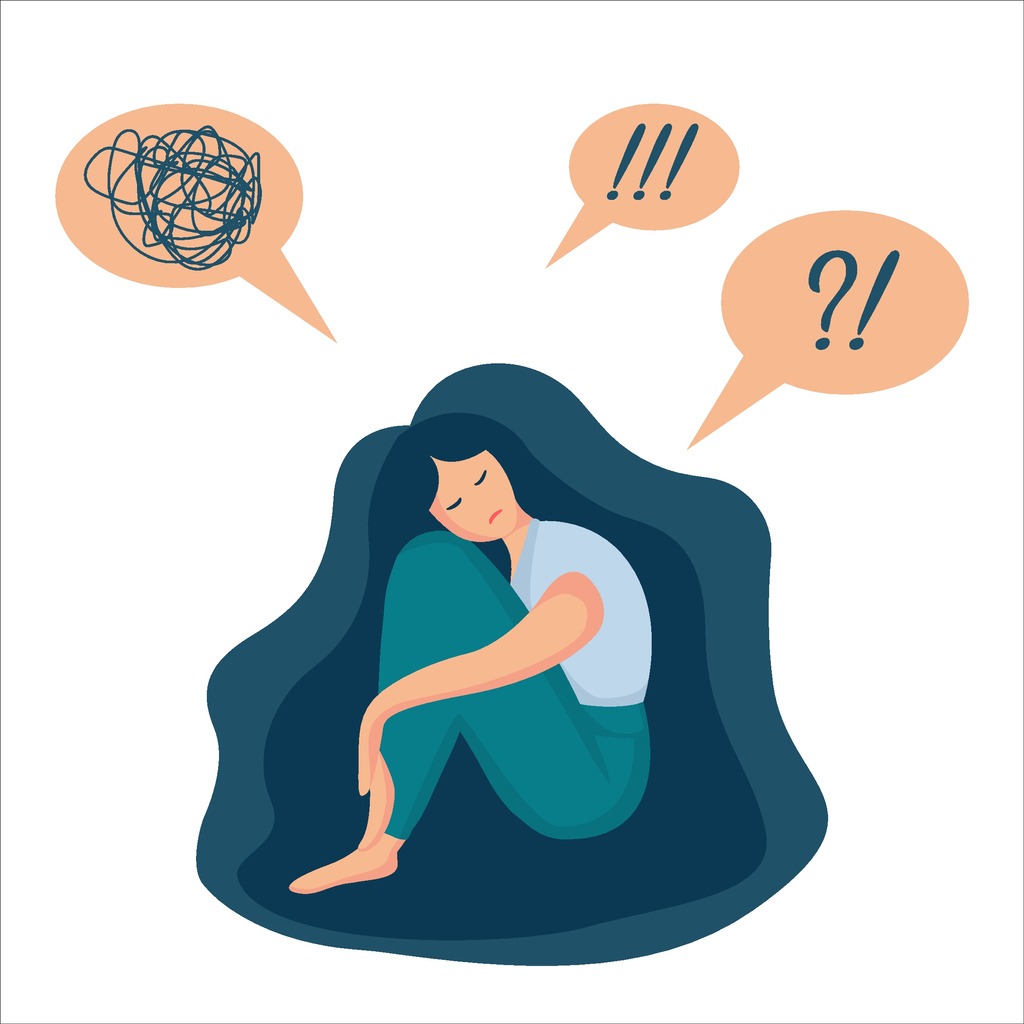We begin a week where some freedoms are being given back to us, and even so, it still feels like we are living in a surreal world. COVID-19 has caused such mass disruption in our lives, and many people are experiencing the resulting trauma on a global scale.
So many of us have been personally impacted, experiencing loss of loved ones and financial insecurity. The situation has brought with it feelings of uncertainty, fear, despair, and anxiety. We carry masks with us even when we go for our walks, and instinctively cross the road if there is a person approaching.
Anxiety We Can Learn From
There is much to learn from this time. We can learn how to deal with our anxieties, how to help ourselves now, and move forward with resilience.
COVID-19 is making us feel anxious because it naturally triggers the fight, flight, or freeze response in us. There is an imminent threat that does not seem to want to go away soon. All our basic survival modes have come into effect. We are having a classic “stress response”.
When we are stressed we want to huddle up with our loved ones and be held or touch them. However, the three biggest recommendations that are being made are to wash hands, socially distance, and wear masks. Looking into each other’s eyes and touching for comfort are all our natural go-to mechanisms for soothing and we are asked to do the very opposite of what calms down our nervous systems.
When we feel worried or stressed, the brain releases stress hormones that actually affect our immune system. When we have a prolonged period of stress, we become more susceptible to infections. We want to make sure we realize that this is not sustainable and that we address this situation that we are going to be in for the next year to two at least.
Human beings need to be able to find meaning in order to go beyond the distress of the present. This meaning allows us to project ourselves into the future. We need to be able to say “this too shall pass, and I am better for it.” Philosophers have long discussed the importance of needing to find meaning for us to survive. We need to go beyond the past and the present and be able to look to the future with hope.
Psychologist, Brene Brown, talks about how neurobiologically we can instill hope, giving ourselves resiliency. We are not hardwired to endure hopelessness or loss of meaning. In fact, trauma can be best understood as a psychological and physiological response to the threat posed by an event rather than the event itself.
It may be that you are not afraid of the virus, you are afraid of dying. You are not afraid of losing your financial security, you are afraid of losing control. However, hasn’t the nature of being alive always constituted coming to terms with dying and ultimately not being in control?
Rethinking Being Alive
The emergence of COVID-19 has shattered the illusions of security and control we have been living with. What really matters now is our ability to survive. Popularity, status, and material possessions all seem so terribly unimportant. Crisis is truly an opportunity for growth. The virus is non-discriminating, no one is immune. It has created a shared humanity among us.
We all have been living lives that have a lot of “busyness” to it, might they have also distracted us from what it means to truly be alive? As a result of sheltering in place, families have made deeper connections with each other. Everyone is talking about how they are meeting neighbors that they had never talked to and that children are back out on the streets riding their bikes!
When we have clarity about the impermanence of our lives and realize that we are all going to die one day, we may move from “doing” lives into “being” lives. We have forgotten to ask the question- what does it mean to exist? We are only able to ask ourselves once we wake up. COVID-19 has made us wake up, hasn’t it? We have been given a chance to live more true to ourselves and with greater simplicity and purpose than ever before. We are being given a chance to re-boot.
It has often been said that it is only when we lose everything that we are free to do anything. As human beings, it is in our nature to create meaning even in the face of such a bleak outlook.
Finding Deeper Meaning
We have to be able to create a context around our suffering in order to honor our experiences and see ourselves with compassion. Generally speaking, anxiety tends to peak when we overthinking things, especially when we play out the worst-case scenarios in our minds. When this is happening, the best thing to do is to ground yourself in the present and bring your attention to the NOW. Noticing things you see, noises you hear, and sensations on your skin are all ways of grounding in present experience.
The neural pathways in our brain change when we practice mindfulness. They create new connections between neurons which leads to our ability to weather this storm.
As we have mentioned in our other blogs, exercising, sleeping well, and having social connections are the main pathways through which we will keep anxiety at bay. Our culture tends to reject suffering, making it something to get rid of, avoid, or worse- medicate. No, we do not need to get on Xanax to cope with COVID-19. Let us get on MEDITATION to cope. Eastern cultures have a lot of room for suffering and acceptance of pain. Pain can cultivate wisdom, maturity, and compassion. When we see suffering as truly inevitable, we don’t fight it, and the waves of suffering are less strong.
Maybe we can embrace the notion that during times of adversity, we have actually received an invitation to live. This might be an invitation to take stock of how you have lived and step towards a greater purpose. Posttraumatic growth is about using suffering as a catalyst to ascend into healthier psychological functioning.
Instead of avoiding anxiety, maybe we move towards facing, approaching, and embracing.
Post-traumatic growth can show up in the nature of our relationships. Strengthening bonds, deeper, more real, and authentic connections may be happening. It can also show up as the realization of new opportunities you may follow. For many of us, surviving adversity sparks recognition of our strength and resilience. We gain trust in ourselves to face further adversity. If we can thrive post-COVID, we can do anything.
Spiritual change is another area of posttraumatic growth, as we may be accessing truer purpose. Research has shown that there are psychological benefits to strengthening a connection to a higher power or God. Times of tragedy can inspire us to cherish each moment we have, deeply practice gratitude, and value goodness. Both of which have been proven to increase people’s sense of contentment.
Any recovery from trauma involves fully accepting the pain and the process of the aftermath. There is no implication that trauma is good. Rather, to live fully is to honor the full realization that we can overcome and create a meaningful life, even having endured something terrible. This way we can gain mastery over recovery, gain a sense of agency, and turn suffering into development.
Living a Fulfilled Life
An event like COVID makes us start to look for another way we can have a sense of meaning. This can come from our character, and the legacy we may want to leave behind. When we believe what we do truly makes a difference, then we have meaning in our lives.
The pause we have had with COVID may have allowed you to ask yourself some essential questions such as “What am I good at?”, “What do I love doing?”, “When do I feel most alive?”, “How can I use these things to positively impact others?”. When we feel aligned with our actions, we feel fulfilled in life, we feel that we have something to give, we feel empathy and generosity with others and that our lives matter. This is hope incarnate and COVID can give us this!
At Healthy Within, we are committed to supporting the emotional health of our community during COVID-19. Healthy Within is an integrative brain health center, experienced in helping people re-engage in their wholeness and wellness. We help clients with anxiety, ADHD, PTSD, depression, concussions, OCD, stroke, dementia, and more.
Contact us for more information about how we can help you get your mind back to functioning at its calm, confident self.

